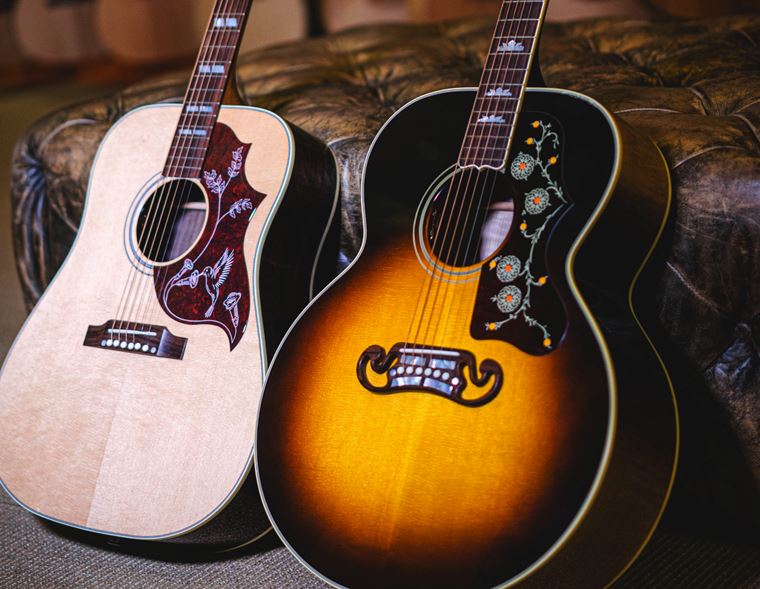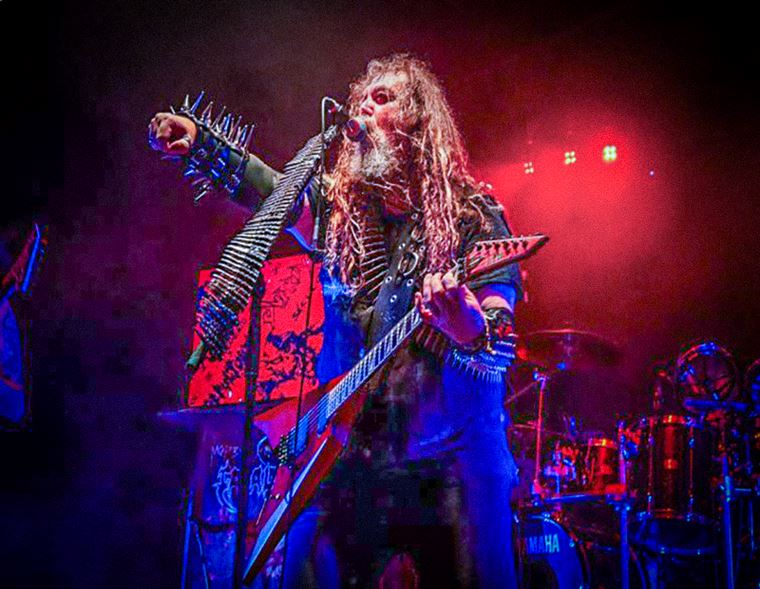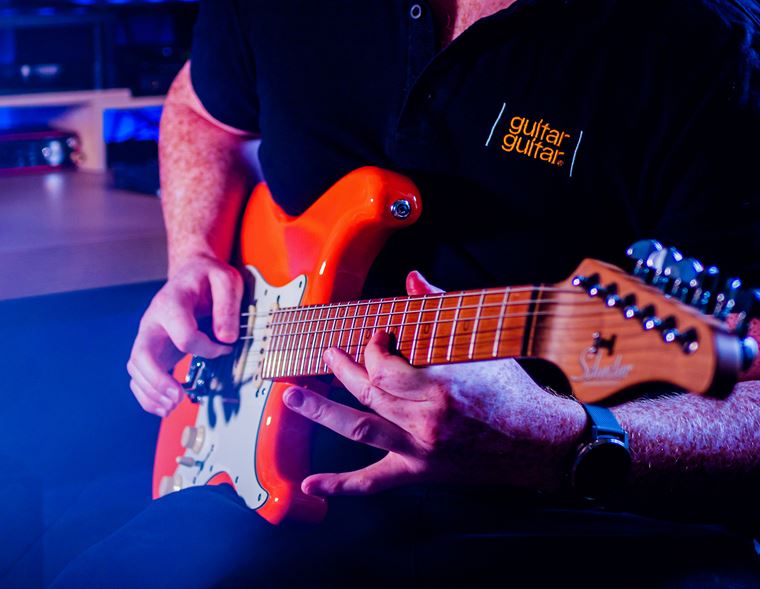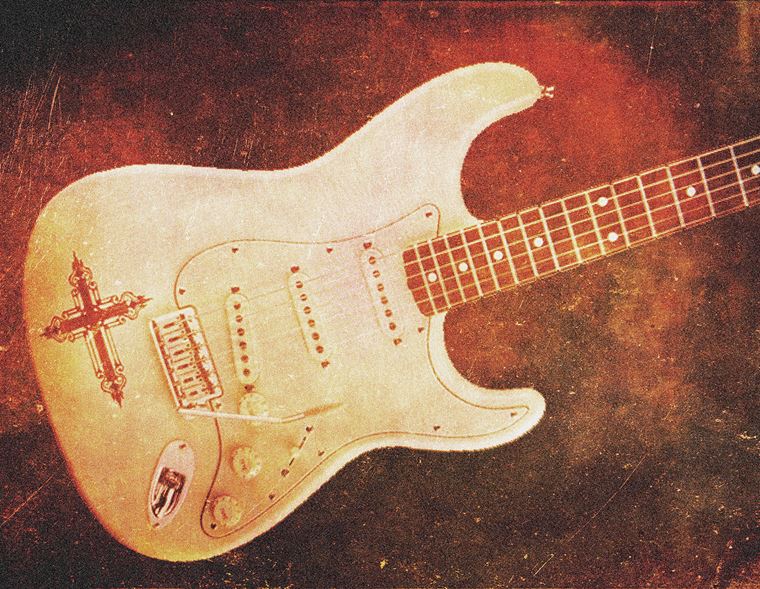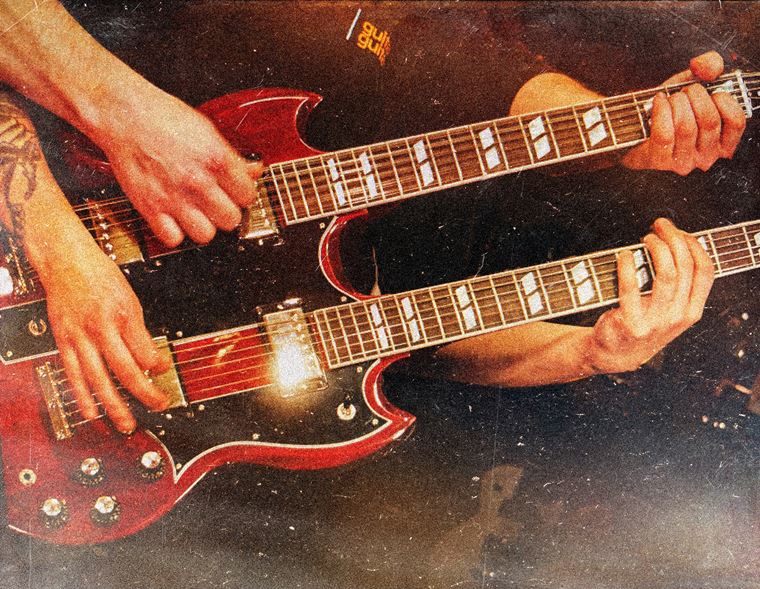Killing Joke - Geordie Walker’s Greatest Guitar Moments
Published on 04 December 2023
Last week the world lost a uniquely talented and massively influential musician in the form of Kevin ‘Geordie’ Walker, Killing Joke’s inimitable guitarist. He had (has) a sound to die for, and a laconic coolness about the way he just casually rattled out gargantuan riffs and grooves from his vintage Gibson ES295.
There’s never going to be another Geordie Walker, so I think it’s worth highlighting a few moments from his career that really punched extra-hard. This list could get long, so I’ll try to put a cap on it! As Gatherers (KJ’s term for their die-hard fans) the world over lament the loss of their six-string saviour, let us instead recognise the greatness inherent in Geordie.
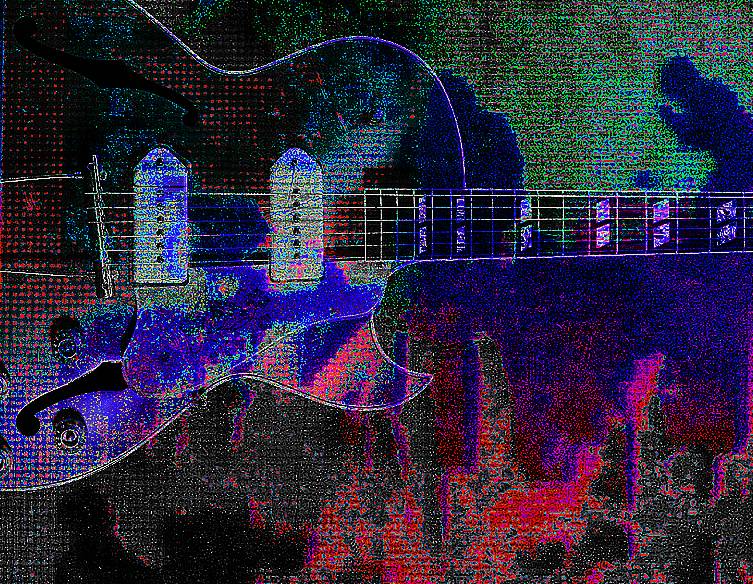
(Photo: Ray McClelland/guitarguitar)
Contents
Eighties - Iconic Riff stolen by Nirvana
Exorcism - Staying on a groove, recording in the Great Pyramid
Total Invasion - World-Ending Tone
Love Like Blood - Arpeggios and Space
Eighties - Iconic Riff stolen by Nirvana
Kurt Cobain never really made a secret of his songwriterly magpieing, but this one is a bit bold! Listen to three seconds of Eighties and you’ll be able to instantly identify the Nirvana enormo-hit that made deft use of that riff!
Rumour has it that KJ were preparing to take the matter to court, until Kurt’s death changed matters. It’s actually not too definitive a sound for Killing Joke or Geordie, who tended towards more overtly rhythmic parts. Still, a class riff is a class riff!
Exorcism - Staying on a groove, recording in the Great Pyramid
This savage cut from the awesomely powerful Pandemonium album shows off a part of Walker’s approach to music that I love the most: his refusal to do anything but get straight to the point and stick to it. This entire tune is based on the one grinding riff, with only the occasional overdub to expand the concept.
For sheer storytelling value, it’s worth knowing that the lead vocals for this tune were actually performed and recorded inside the main King’s Chamber of the Great Pyramid in Giza, Egypt, believe it or not! The story goes that the band ‘hired the venue’ as it were, and tried recording with some mobile generators. Each generator had hours’ worth of battery life, but each one kept conking out within ten minutes inside the pyramid. In the end, the band (who are well known for their occult/esoteric practises) led a ritual to appease whatever energies lay within the space, and managed to get their recordings done on the site the following day.
What really went on in there? It’s hard to say, but it’s all documented on video, so you can go and see for yourself in KJ’s documentary The Death and Resurrection Show.
Total Invasion - World-Ending Tone
One of the most notable elements of Geordie’s art was his always-impeccable tone. Thick, chewy and textured, he worked his Gibson ES295 like no one else. Over the years, his sound got progressively heavier, but that sonic identity remained clear as night.
This particular tune from Killing Joke’s 2003 self-titled record is a prime example of his sound in full-on ‘cronch’ mode. Walker is tuned to D standard, and is playing his ES295 into what I’m assuming are his famous Burman amps. He has used other amplifiers from time to time - Marshall Vintage Modern and Framus heads, for example - but it’s most likely the Burmans in service here.
It’s a notable track for many reasons, not least Jaz Coleman’s groundbreaking, subversive vocal style. Hey, and Dave Grohl on drums!
Love Like Blood - Arpeggios and Space
Certainly, Killing Joke were not a band who wanted extended soloing in their sound, but Geordie’s reticence to indulge is still quite something!
One great example of his economy is from the excellent Love Like Blood, from the Night Time record. Geordie occasionally joins the propulsive rhythm lines of Paul Raven’s bass, but mostly instead throws out a range of bruised, gorgeous arpeggio soundscape shards, decorating the edges of the song with texture and context.
Understanding how important space is in a song is something that some guitarists never learn, and Walker had a rare instinct for it. Every note here is perfect, and sparse as it is, nothing is missed.
The Wait - Timing
There are countless examples that could go in here to demonstrate Geordie’s feel for a tight groove. It’s perhaps the most characteristic part of his playing, all said, but this early example from Killing Joke’s debut record will serve as well as any to highlight this!
Walker often included harmonics in his riffs, for a bit of light and shade, and you’ll hear them in this song’s intro.
It’s more the stomp of it all, and his ability to define a rhythm whilst still steering clear of the vocals, that impresses. Did he ever feel the urge to embellish bits and add little runs? Maybe! We’ll never know, because he understood how important it was for him to keep explaining the groove, with a sense of timing that was urgent and right on the beat. He was one of the few guitarists who seemed able to decide when to land exactly on the beat and when to slack a little behind it. He did both, and it seems to me like it was always a decision, which is quietly impressive.
Subtle Genius
Georide Walker will never be one of those guitarists who ends up in online Top Tens, because his focus was so tightly centred on the band as a unit. Now, lots of mediocre guitarists use that type of remark to excuse what they lack, but there was never anything ‘mid’ about Walker, his sound or his playing. What you got instead was a highly developed sense of style, tone and dynamic, all funnelled through an attitude that broke through the ego and went straight for the heart & soul.
What more could you want from a musician?







